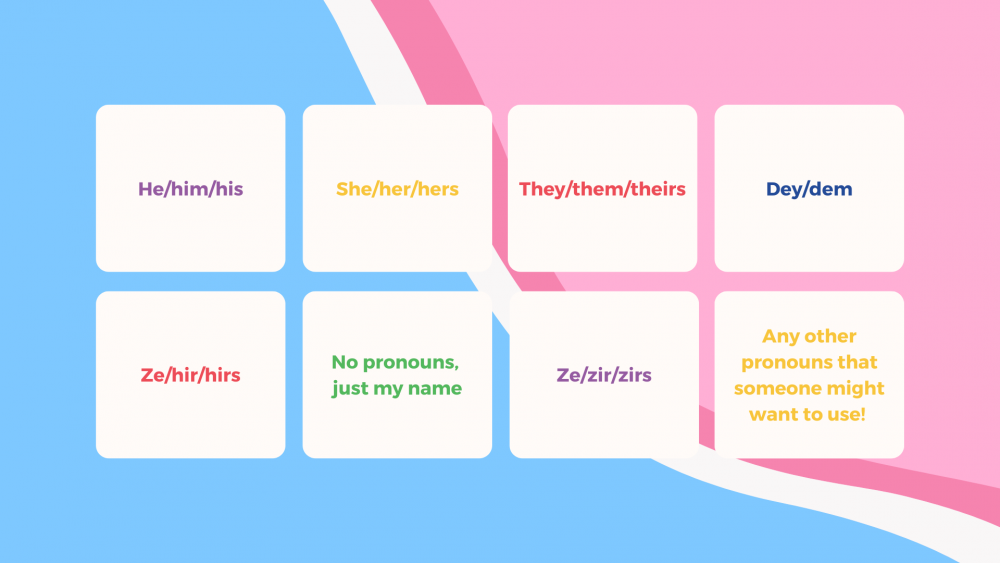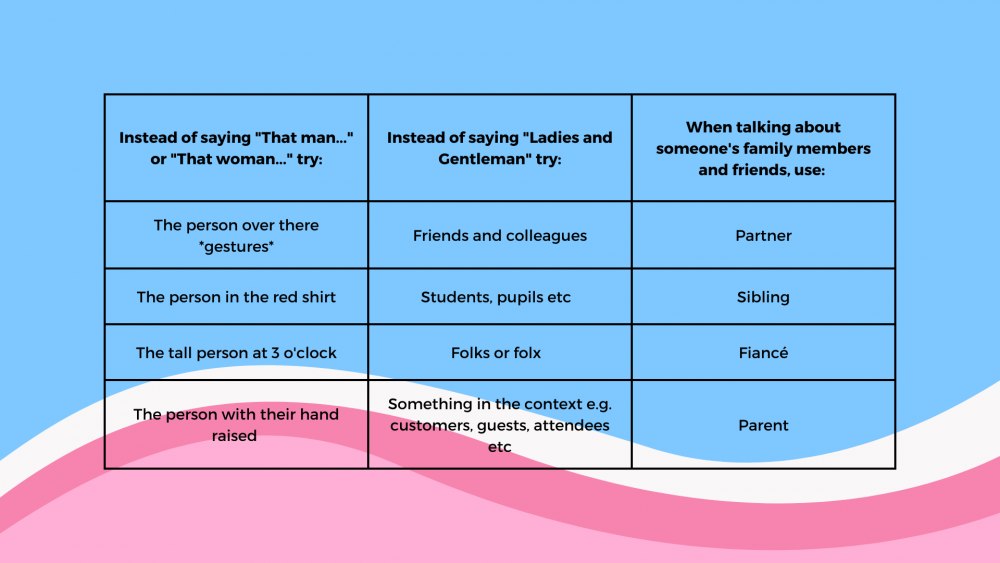
People often speak to and about others using gendered language. When speaking of a singular human in the third person in English, many people tend to use pronouns which have a gender binary implied -- such as “he” to refer to a man/boy or “she” to refer to a woman/girl. We also use gendered language in the plural, such as ‘ladies and gentleman’, ‘boys and girls’ and so on.
These assumptions about the gender identity of another person are usually based on the person’s appearance or name, and are based on stereotypes and social constructs we have been conditioned to believe whilst growing up. It is up to each individual to decide what pronouns they would like to use at any age. If you've always been comfortable with people using She and her pronouns in reference to you, and want to continue using those, that’s fine! And equally, if someone who has always had people use He and him pronouns in reference to them has decided they want to use They and them pronouns, or no pronouns at all, as soon as we are aware of that it's important to respect it. #IChooseKindness
It’s important not to assume someone’s pronouns based on the way they look. It can be offensive to assume someone’s pronouns based on appearances, so it's best to ask someone for their pronouns first in most situations. An easy way to find out someone’s pronouns (before you assume what they are) is to introduce yourself with your own, and ask theirs.
Many people will include their pronouns on their social media profiles, in email signatures and even on badges that they wear daily. This is their way of letting you know their pronouns so you don’t have to assume or ask - you can just start using the correct pronouns straight away! However, some people might not want to share their Pronouns, or they might not use them at all, so it's important to be respectful of how much people might want to share publicly.
“Hi, I’m Naz and my pronouns are He and him, what about you?"

As well as whats above, someone may use other Pronouns that aren’t as widely used, but work for them. Even if you don’t fully understand what someone's Pronouns mean or represent, you should absolutely still use them out of respect for the individual.
Many people already avoid assumptions about sexual orientation (e.g. asking a woman if she has a boyfriend). Many people have stopped using “he” as a universal language to refer to all people, or to exclusive “he” language or “she” language to refer to all fire fighters, all flight attendants, all doctors, all nurses, all administrative assistants, all college students, etc.
Similarly, we need to shift our language to avoid further assumptions that particularly harm transgender and gender nonconforming people. Small changes in language can make a big difference in peoples lives.

This website also provides much more explanation, examples, and information about pronouns and gender inclusive language.
Much of this information was taken from Pronouns.org:
